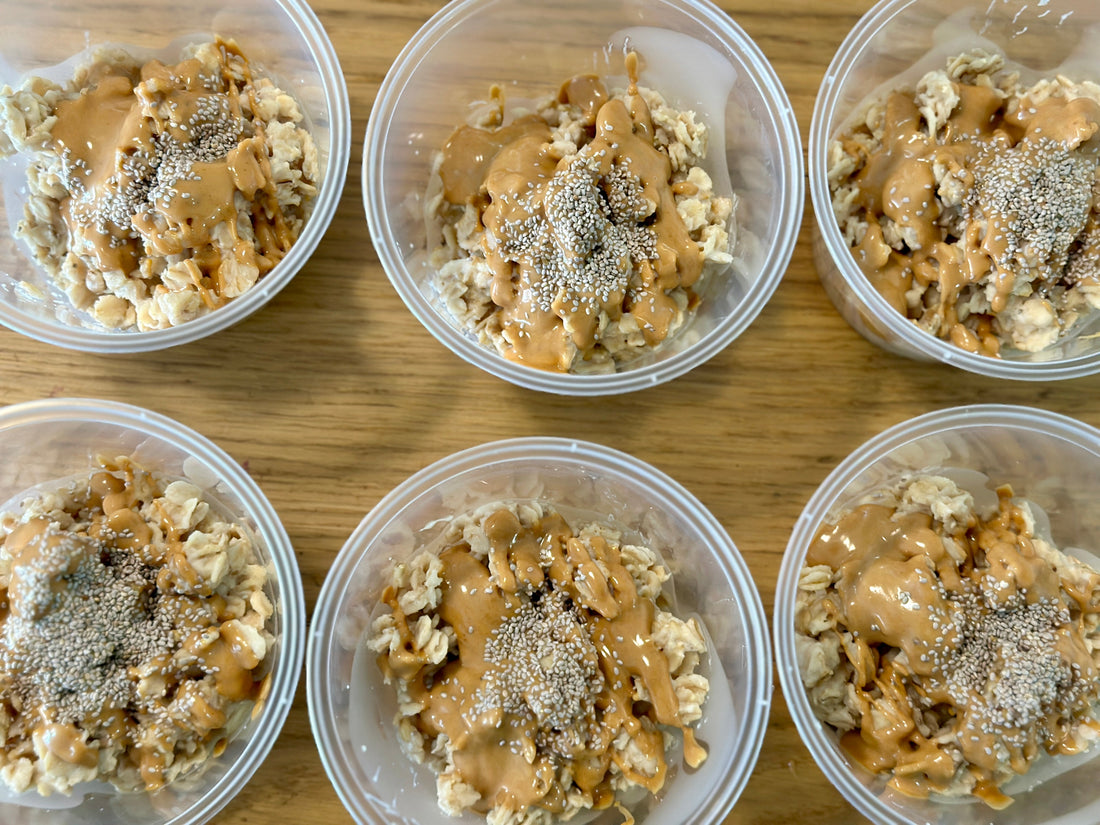
Need to Lose 5kg and Boost Your Health, Muscles, and Metabolism? Then include this in your diet
Protein is a powerhouse nutrient that does much more than help you build muscle. It's made up of building blocks called amino acids, which your body uses to repair tissues, regulate hormones and enzymes, and keep you feeling full and satisfied after meals.
This satiety factor is crucial in curbing cravings and supporting weight loss goals.
If you're looking to shed 5kg, boost your metabolism, and improve your overall health, increasing your protein intake is a simple and effective strategy.

Here's why protein is vital and how you can incorporate it into your diet.
Why Protein is Essential
-
Muscle Repair and Growth: Protein provides the amino acids needed to repair and build muscle, especially after exercise. Muscle mass plays a significant role in boosting metabolism, as it burns more calories at rest compared to fat tissue.
-
Hormonal Regulation: Protein helps maintain a healthy balance of hormones that control appetite and metabolism, making it easier to manage your weight.
-
Satiety and Craving Control: High-protein meals keep you feeling full longer, reducing the likelihood of overeating and helping you avoid unhealthy snacks.
Plant-Based Protein: A Powerful Alternative
While many people think of meat, dairy, and eggs as primary protein sources, plant-based options can be just as effective and often come with additional health benefits. Here are some high-protein plant-based foods:
-
100g Peanut Butter: 26g protein
-
100g Pumpkin Seeds (Pepitas): 26g protein
-
100g Almonds or Pistachios: 23g protein
-
100g Cashews: 21g protein
-
100g Chia Seeds or Tahini: 20g protein
- 1 serve of Zing Wellbeing Organic and Vegan protein powder - 25g protein

Incorporating plant-based proteins like quinoa, nuts, seeds, legumes, lentils, and tofu into your diet can help stabilise blood sugar levels, improve digestion, and add variety to your meals.
They are also cost-effective and easier to digest than some animal-based proteins.

Animal-Based Protein: Still a Star Player
Animal proteins are nutrient-dense and highly bioavailable, meaning your body absorbs them efficiently. Here’s how they stack up:
-
Chicken: 33g protein per 100g
-
Beef: 27g protein per 100g
-
Pork: 22g protein per 100g
-
Duck: 19g protein per 100g
-
Fish: In a league of its own, fish is easy to digest, rich in protein, and packed with omega-3 fatty acids that support brain health, hormone balance, and overall wellbeing.
Here’s a list of different fish and their approximate protein content per 100g:
- Tuna (fresh): 30g protein
- Salmon (Atlantic): 25g protein
- Cod: 20g protein
- Halibut: 22g protein
- Mackerel: 24g protein
- Sardines (canned in oil): 25g protein
- Trout: 23g protein
- Snapper: 21g protein
- Tilapia: 26g protein
- Haddock: 20g protein
Fish not only delivers high-quality protein but is also rich in omega-3 fatty acids, vitamins D and B12, and essential minerals like selenium and iodine. These nutrients contribute to brain health, hormone regulation, and reduced inflammation, making fish a standout choice for both protein and overall nutrition.

Balancing Protein with Other Nutrients
A high-protein diet is only effective when balanced with carbohydrates and healthy fats. Fruits and vegetables provide essential fibre, vitamins, and minerals to support gut health and digestion.
Healthy fats, like those found in fish, nuts, seeds, and avocado, are vital for hormone production and brain function.
Here’s why balance matters:
-
Fibre: Feeds your gut bacteria, promotes digestive health, and keeps you feeling satisfied.
-
Carbohydrates: Provide the energy your body needs to perform daily activities and fuel workouts.
-
Fats: Support hormone regulation, brain health, and the absorption of fat-soluble vitamins (A, D, E, and K).
Portion Control for Health and Longevity
Many people tend to over-serve animal proteins. Learning to portion your meals and rotate between plant-based and animal-based protein sources can improve your health and increase longevity. Research suggests this balanced approach may reduce the risk of chronic diseases and support a sustainable, long-term diet.
How to Incorporate More Protein
-
Start your day with a high-protein breakfast like Greek yogurt with chia seeds and fresh berries.
-
Snack on a handful of nuts or a boiled egg to keep hunger at bay.
-
Add lentils or beans to soups, stews, and salads for a plant-based protein boost.
-
Include lean meats or fish in your main meals, paired with plenty of vegetables and a source of healthy fats.
You can also see our high protein meal plans in our Zing Wellbeing membership

The Bottom Line
Increasing your protein intake is a proven way to support weight loss, boost metabolism, and enhance overall health.
By combining plant-based and animal-based proteins, along with adequate fibre, carbohydrates, and fats, you can create a balanced diet that fuels your body and promotes long-term wellbeing.
Whether your goal is to lose 5kg, build muscle, or simply feel healthier, protein should be a cornerstone of your nutrition plan.
Rhian's high protein diet
You can also read about how Rhian lose her tummy fat and approximately 5kg using high protein and gut friendly meal plans - read here


